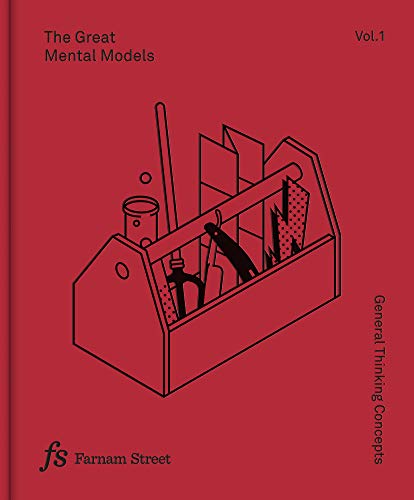
Notes on
The Great Mental Models: General Thinking Concepts
by Shane Parrish
• 3 min read
First Principles Thinking
First principles thinking, or reasoning from first principles, is a way to think about complicated problems. You separate the first principles (the axioms, that which we know is true) from the assumptions we’ve made in them, and you reason only by the first principles.
Forget your preconceptions: what’s actually possible?
When you are doing first principles thinking, you are really shredding shared beliefs and preconceptions. If we never question, how can we know for sure?
Some techniques for first principles thinking are Socratic questioning and the five whys method.
Socratic Questioning
This is the general process of Socratic questioning:
- Clarify your thinking and explain the origin of your ideas. Why do you think that way? Where are your ideas from?
- Challenge your assumptions. How do you know it’s true? Try inversion.
- Look for evidence. Sources.
- Consider alternative perspectives
- Examine consequences and implications. What happens if you’re wrong? If you’re right?
- Question the original questions. Why did you think as you did? Was it right? What conclusions can be drawn from your reasoning process.
Second-Order Thinking
Second-order thinking is thinking ahead; thinking of the consequences beyond the immediate effects.
Going to the gym is, in the short term, hard, time consuming, and rewarding. Over time, however, it’ll lead to improved fitness.
Investing means that you don’t have that amount of money right now - because it’s invested - but you may have more (or less) later.
If you don’t think about the future consequences of your actions, it can end badly.
If you only look at the immediate result, you’d always seek instant gratification. However, we know that is not usually a good thing.
When doing second-order thinking, be careful of the Slippery Slope effect. Just because you overeat once, doesn’t mean you’ll become overweight for certain.
In Filters Against Folly, it is explained that making such arguments assume no practical judgment from humans. If we want to prevent all transport accidents, why don’t we just ban transport? Obviously, that’s ridiculous. Some rewards outweigh the risks. Don’t let this type of argument paralyze you from making a decision.
Hanlon’s Razor
Do not attribute to malice what can be attributed to stupidity.
Quotes
Remember that all models are wrong; the practical question is how wrong do they have to be to not be useful.
— George Box
I don’t know what’s the matter with people: they don’t learn by understanding; they learn by some other way—by rote or something. Their knowledge is so fragile!
— Richard P. Feynman
What is common to many is taken least care of, for all men have greater regard for what is their own than for what they possess in common with others.
— Aristotle
Liked these notes? Join the newsletter.
Get notified whenever I post new notes.